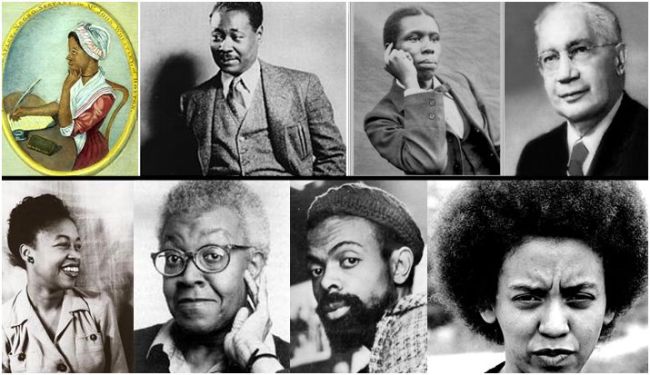(ThyBlackMan.com) Poetry has always been a powerful medium for self-expression, a way to communicate complex ideas and emotions in a concise and poignant manner. Black poetry, in particular, has a long and rich history, rooted in the experiences of Black people throughout the diaspora. From the earliest slave narratives to contemporary spoken word performances, Black poets have used their craft to document their struggles, celebrate their culture, and articulate their hopes for a better future. In this article, we will explore what Black poetry is, its origins, and some notable examples.
What is Black Poetry?
Black poetry is a term used to describe poetry written by Black people or poetry that speaks to the experiences of Black people. It encompasses a wide range of styles and forms, including sonnets, free verse, haikus, spoken word, and slam poetry. At its core, Black poetry is about giving voice to the experiences, emotions, and perspectives of Black people in a world that often seeks to silence or erase them.

Origins of Black Poetry
The origins of Black poetry can be traced back to the earliest days of the transatlantic slave trade. Enslaved Africans brought with them a rich tradition of oral storytelling and music, which they used to maintain a connection to their culture and to resist their oppressors. As literacy became more widespread among Black people, poetry began to emerge as a powerful tool for self-expression and resistance.
One of the earliest examples of Black poetry in the United States is the work of Phyllis Wheatley, a slave who was brought to Boston in 1761. Despite being denied a formal education, Wheatley taught herself to read and write and went on to publish her first poem at the age of 13. Her poetry, which often celebrated the accomplishments of white men and women, was criticized by some Black writers for its lack of racial consciousness. However, others have argued that Wheatley’s work should be viewed within the context of her life as a slave, and that her use of the conventions of neoclassical poetry was a way of asserting her humanity in a world that denied it.
In the 19th and early 20th centuries, Black poetry began to flourish as more Black people gained access to education and the means to publish their work. The Harlem Renaissance, a cultural movement that took place in the 1920s and 1930s, was a particularly important period for Black poetry. Poets such as Paul L. Dunbar, Langston Hughes, Countee Cullen, and Claude McKay used their work to celebrate Black culture, critique racism and inequality, and explore the complexities of Black identity.
During the Civil Rights Movement of the 1950s and 1960s, Black poetry once again became a powerful tool for activism and resistance. Poets such as Amiri Baraka, Gwendolyn Brooks, and Sonia Sanchez used their work to articulate the frustrations and hopes of Black people as they fought for their rights and dignity. The Black Arts Movement of the 1960s and 1970s, which was closely aligned with the Civil Rights Movement, emphasized the importance of Black cultural expression and called for the creation of a distinctly Black aesthetic.
Contemporary Black Poetry
Today, Black poetry continues to thrive as a vibrant and diverse art form. Contemporary poets such as Claudia Rankine, Terrance Hayes, and Danez Smith are pushing the boundaries of what Black poetry can be, exploring new forms and styles and addressing a range of social, political, and cultural issues. The emergence of spoken word and slam poetry has also given rise to a new generation of Black poets who are using their voices to speak truth to power and to connect with audiences in new and exciting ways.
One of the defining features of contemporary Black poetry is its intersectionality. Many Black poets today are grappling not only with racism and inequality, but also with issues such as gender, sexuality, and disability. They are using their poetry to explore the ways in which these identities intersect and shape their experiences of the world. For example, in her collection “Citizen: An American Lyric,” Claudia Rankine uses poetry, prose, and images to examine the experiences of Black people in America, including microaggressions, police violence, and the ways in which white supremacy operates on a systemic level. At the same time, she also explores the ways in which gender and sexuality intersect with race to shape these experiences.
Another notable feature of contemporary Black poetry is its use of language. Many Black poets today are experimenting with language in innovative ways, playing with syntax, grammar, and diction to create new meanings and convey complex emotions. For example, Terrance Hayes often uses puns and wordplay to explore the contradictions and complexities of Black identity, while Danez Smith uses repetition and fragmentation to convey the pain and trauma of racism and violence.
List of Black Poetry Sites:
AfroPoets – Famous Black Writers
Conclusion
Black poetry is a powerful and important art form that has played a significant role in documenting the experiences of Black people throughout history. From its origins in the oral traditions of enslaved Africans to its current manifestations in spoken word and slam poetry, Black poetry has been a way for Black people to assert their humanity, celebrate their culture, and resist their oppressors. Today, Black poetry continues to thrive as a vibrant and diverse art form, with poets exploring new forms, styles, and themes to speak to the experiences of Black people in the 21st century.
Staff Writer; Jamar Jackson
This brother has a passion for poetry and music. One may contact him at; JJackson@ThyBlackMan.com.

















Leave a Reply